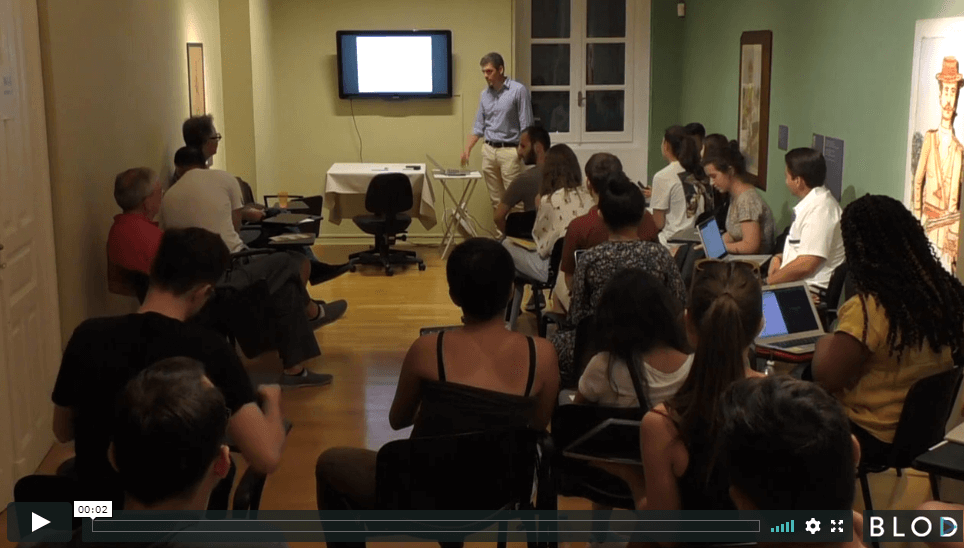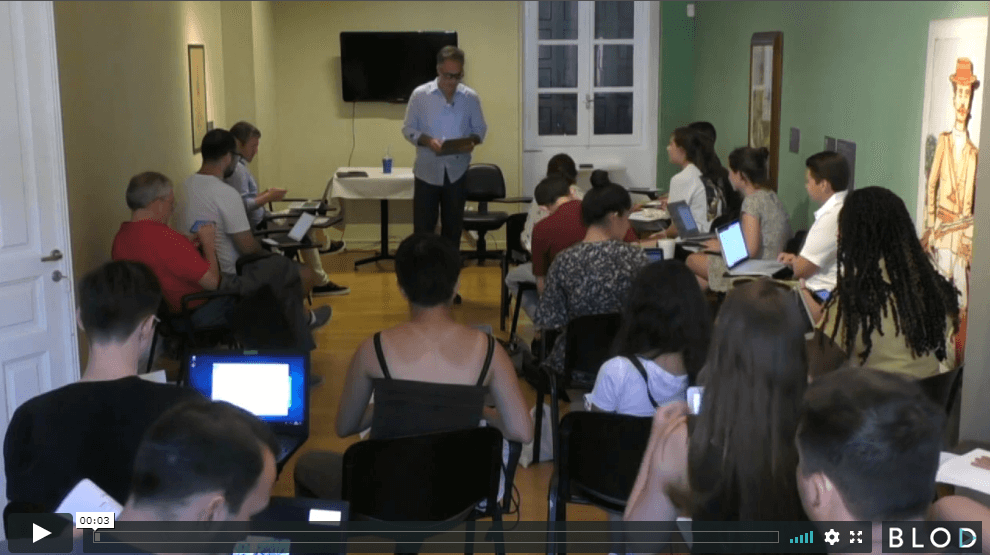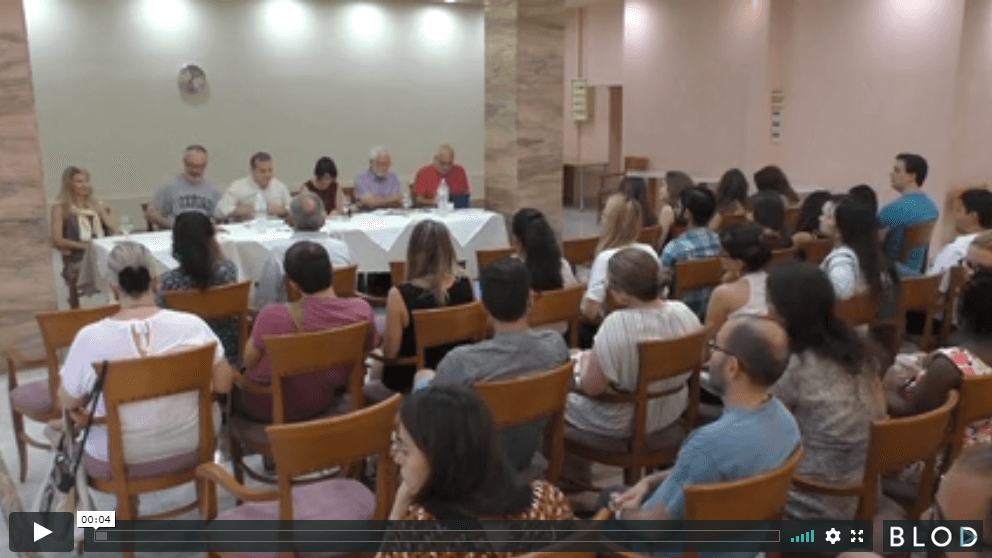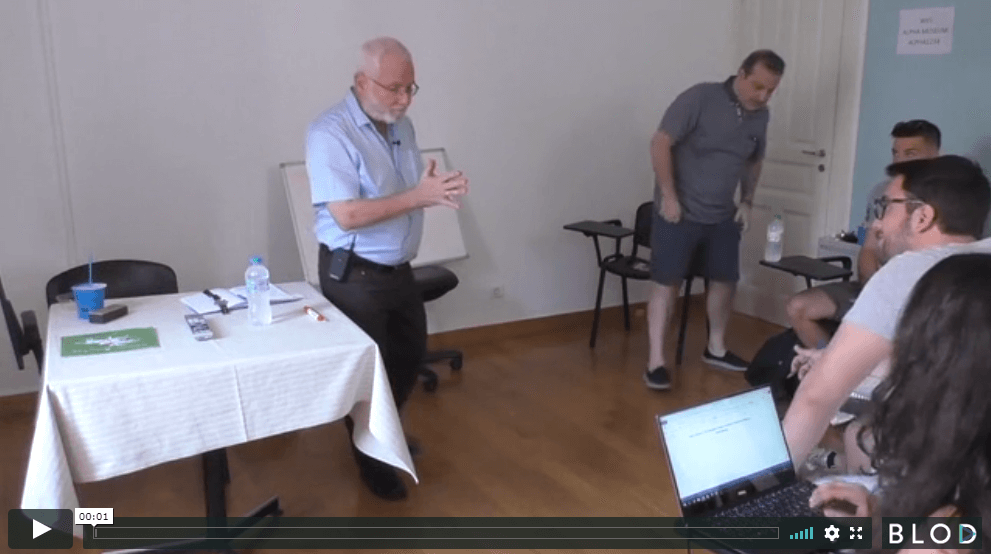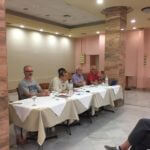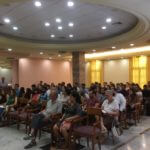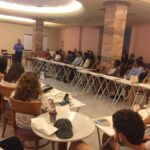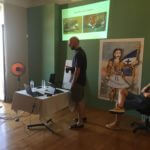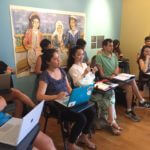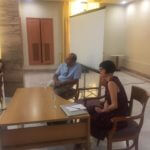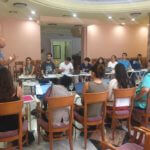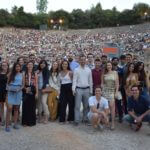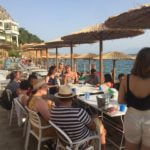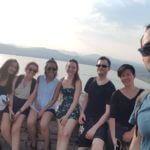Olympia Summer Academy 2019
- December 2, 2018
- Posted by: NN Office
- Category: OSA 2019
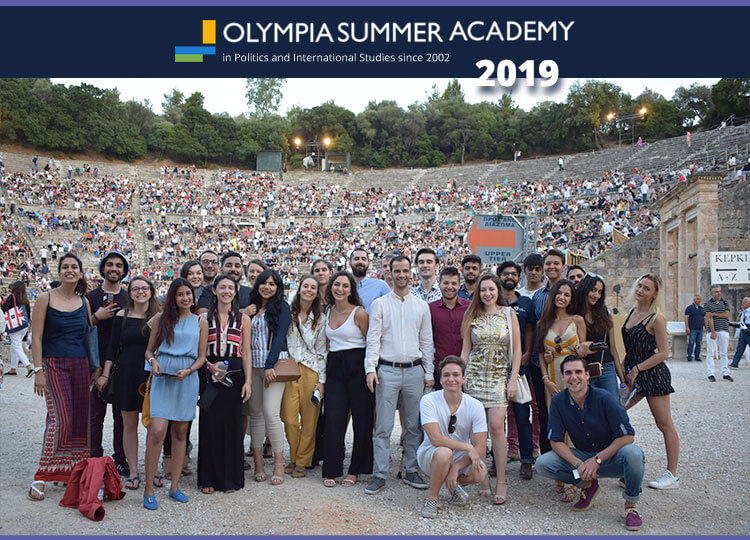
The Olympia Summer Academy, an intensive summer school in comparative and international politics for graduate students, young professionals and senior undergraduates, proudly presents its 2019 program. The 18th Olympia Summer Academy will take place from July 7 until July 16, 2019, in Nafplion in southeastern Greece.
Please find here the call for applications for the 2019 Olympia Summer Academy. Please note that there are many opportunities for financial aid. Please read the information carefully and do not hesitate to contact us if you have any questions.
Apply now and join a select group of more than 1,000 proud “Olympians” from 70 different nations who excel in academia, business and politics worldwide today. Thanks to a combination of the in-class teaching and out-of-class activities and the high quality of both the faculty and the students, this can be a transformative experience that will help you achieve your career goals.
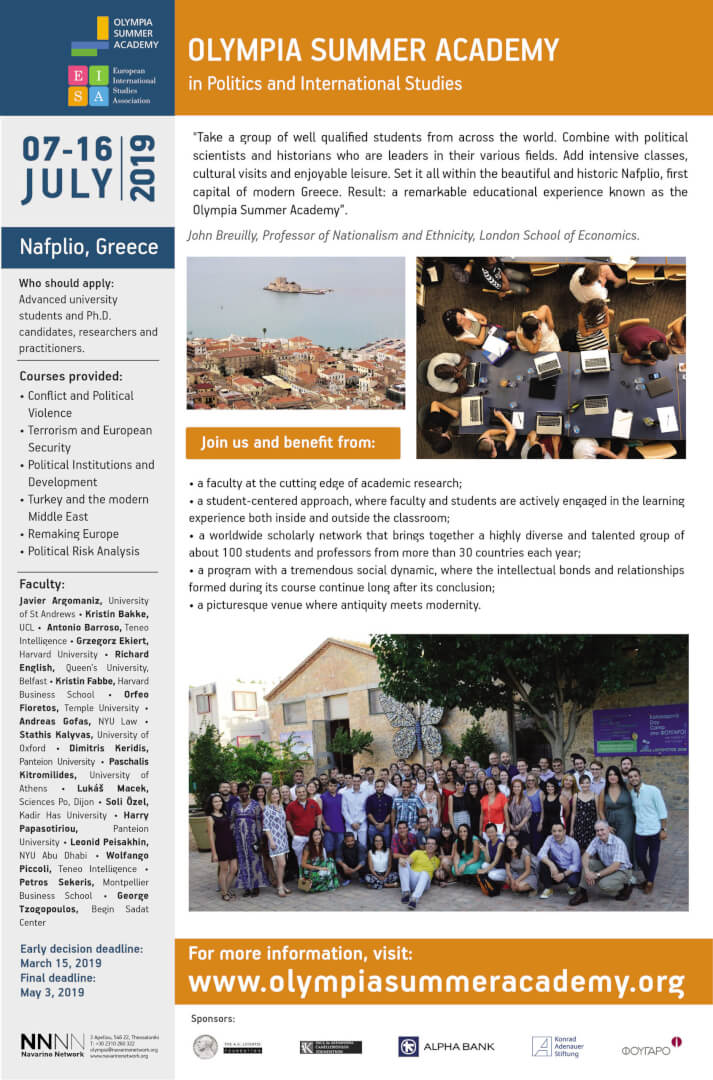
CYCLE A: Conflict & Political Violence
July 7-16, 2019
Course Description:
The goal of this course is to review the most recent developments in the field of conflict and political violence. In exploring the intersection of large-scale collective action and political violence, we will draw from several fields of research and methodological approaches and we will examine a broad cross-section of topics, including the causes and dynamics of civil war, ethnic conflict, mass violence, genocide, riots, and terrorism; the logic of rebel group formation, cohesion, and performance, and the dynamics of post-conflict violence, peacekeeping, and peace-building. Our geographic focus will be broad, reflective of the faculty’s diverse expertise. An integral part of the course is a workshop where students can present their ongoing research and receive feedback from faculty and peers.
The faculty includes:
- Kristin Bakke, Professor in Political Science and International Relations, UCL; Associate Research Professor at the Peace Research Institute Oslo.
- Stathis Kalyvas, Gladstone Professor of Government, Department of Politics and International Relations at the University of Oxford, and fellow of All Souls College.
- Leonid Peisakhin, Assistant Professor of Political Science, NYU Abu Dhabi.
CYCLE B: Terrorism and European Security
July 7-16, 2019
Course Description:
Terrorism, and our response to it, is among the most compelling of global political issues: it dominates news headlines, public anxiety, and political strategies alike. Yet few attempt to analyze systematically this pressing phenomenon. Surely, no amount of analytical precision will rid us of the existence of terrorism, but if we want to respond effectively to the policy challenge that it poses we need first to respond effectively to its analytical challenge. To this end, the course offers concentrated, in-depth exposure to the evolution and major characteristics of modern terrorism, its actors, strategies and modus operandi, as well as an understanding of the challenges this phenomenon presents to decision-makers and security establishments. Topics that will be covered include: the place of terrorism within the broader context of political violence; the causes of terrorism; the strategic (in)effectiveness of terrorism; the conditions under which terrorist organizations come to an end; the rise of ISIS; the place of terrorism in the changing European security landscape; and the art counter-terrorism. An integral part of the course is a workshop where students can present their ongoing research and receive feedback from faculty and peers. The course will be a unique platform to engage in challenging debates and to consolidate a global research network in the fast-growing field of Terrorism Studies.
The faculty includes:
- Javier Argomaniz, Lecturer at the Handa Centre for the Study of Terrorism and Political Violence (CSTPV), University of St Andrews.
- Richard English, Pro-Vice-Chancellor of Queen’s University, Belfast, where he is also Professor of Politics and Distinguished Professorial Fellow in the George J. Mitchell Institute for Global Peace, Security and Justice.
- Andreas Gofas, Associate Professor of International Relations, Panteion University of Athens; Senior Global Emile Noël Fellow and Fulbright Visiting Scholar at the NYU Jean Monnet Center.
- Stathis Kalyvas, Gladstone Professor of Government, Department of Politics and International Relations at the University of Oxford, and fellow of All Souls College.
- Harry Papasotiriou, Professor of International Politics, Panteion University of Athens; Director of the Institute of International Relations, Athens, Greece.
CYCLE C: Political Institutions and Development: Democratic vs Authoritarian Capitalism
July 7-12, 2019
Course Description:
The relationship between capitalism and political regime types stands at the center of this course, which examines the origins, evolution, and governance of diverse democratic and authoritarian models of economic development. Taught by an interdisciplinary team of researchers who examine historical and contemporary cases of democratic and authoritarian capitalism, the course addresses themes such as state capacity; market-making and political development; varieties of capitalism; international competition and integration; historical legacies; culture; political and economic transitions; inequality; and populism. These themes have become all the more timely with populist surges in the United States and Europe and with the rise of China and regimes that use novel mixes of democratic and authoritarian economic governance. Students will receive feedback on ongoing research and learn in a dynamic classroom devoted to examining conventional wisdoms and new perspectives on democratic and authoritarian models of capitalism.
The faculty includes:
- Orfeo Fioretos, Associate Professor of Political Science, Temple University, Philadelphia.
- Harry Papasotiriou, Professor of International Politics, Panteion University of Athens, Director of the Institute of International Relations, Athens, Greece.
- Wolfango Piccoli, Co-president and Director of Research, Teneo Intelligence.
- Petros Sekeris, Associate Professor of Economics, Montpellier Business School.
- George Tzogopoulos, Begin Sadat Center, Israel.
CYCLE D: Turkey and the making and unmaking of the modern Middle East
July 7-12, 2019
Course Description:
2018 marked the centennial of the end of World War I. The War destroyed the Ottoman Empire and gave rise to a new regional order in Southeastern Europe and much of the Middle East and North Africa (MENA). In recent decades, the former Ottoman world has become one of the most talked-about slices of political geography on the globe. The Yugoslav wars of succession in the 1990s, multiple civil conflicts across the MENA, as well as the American-led invasion of Iraq in 2003 and the aftermath of the “Arab Spring” have led many to ask: Is the post Ottoman order unraveling? The cycle aims to study the making, unmaking and future remaking of the region once ruled by the Ottomans. The cycle will discuss how global forces such as colonial legacies, nationalism, development, modernization, religious extremism, economic globalization and great-power rivalries have shaped and continue to affect the politics of the region. While the cycle will have a broader, regional, perspective, it will, nevertheless, focus on Turkey, in particular, examining the changes and continuities in its politics, from the imperial to the republican era, and from the Kemalist period to the rule of President Recep Tayip Erdogan.
The faculty includes:
- Kristin Fabbe, Assistant Professor of Business Administration, Harvard Business School.
- Dimitris Keridis, Professor of International Relations, Panteion University of Athens.
- Paschalis Kitromilides, Professor of Political Science, University of Athens.
- Soli Özel, Professor of International Relations, Kadir Has University, Istanbul.
- Harry Papasotiriou, Professor of International Politics, Panteion University of Athens; Director of the Institute of International Relations, Athens, Greece.
CYCLE E: Remaking Europe at a time of crisis
July 11-16, 2019
Course Description:
The course will examine the state of the European Union (EU) today, after years of economic turmoil, a refugee/immigration crisis, the departure of Great Britain, the rise of populist and far-right nationalist forces and the repositioning of both Russia and the United States, under President Trump, against European unity. The course will provide a comprehensive introduction to European politics and the politics of the EU and will focus on the main political forces shaping contemporary Europe. The course will benefit from the expertise of a diverse faculty, comprised of leading scholars of comparative politics, international relations and political economy.
The faculty includes:
- Antonio Barroso, Managing Director (Europe) and Deputy Director of Research, Teneo Intelligence.
- Stathis Kalyvas, Gladstone Professor of Government, Department of Politics and International Relations at the University of Oxford, and fellow of All Souls College.
- Dimitris Keridis, Professor of International Relations, Panteion University of Athens.
- Lukáš Macek, Director of Sciences Po, Dijon, France.
- Harry Papasotiriou, Professor of International Politics, Panteion University of Athens; Director of the Institute of International Relations, Athens, Greece.
- Wolfango Piccoli, Co-president and Director of Research, Teneo Intelligence.
CYCLE F: Political Risk Analysis
July 11-16, 2019
Course Description:
In recent times, financial investors and multinational corporations have become more aware of the need to “go beyond economics” and integrate political factors into their decision-making process. From rising populism in developed economies to increased political instability in emerging markets and geopolitical turmoil in the Middle East and Eastern Europe, politics lie behind the most important global market-shaping events. The objective of the course is to explore ways in which political risk can be analyzed and managed in a range of environments. The course is structured to provide participants with a good theoretical understanding of the concept, but also with analytical tools to identify, trace and measure political trends that can affect business and investment interests. We will examine political risk in both emerging markets and developed economies and cover specific sources of risk such as political upheaval, expropriation, or protectionism. The course will rely heavily on case studies ranging from transnational to local examples. Simulations covering current political events will also be used in order to encourage a hands-on approach by participants and help them design strategies to manage and mitigate political risk.
The faculty includes:
- Antonio Barroso, Managing Director (Europe) and Deputy Director of Research, Teneo Intelligence.
- Wolfango Piccoli, Co-president and Director of Research, Teneo Intelligence.
OSA 2019 from Navarino Network on Vimeo.











